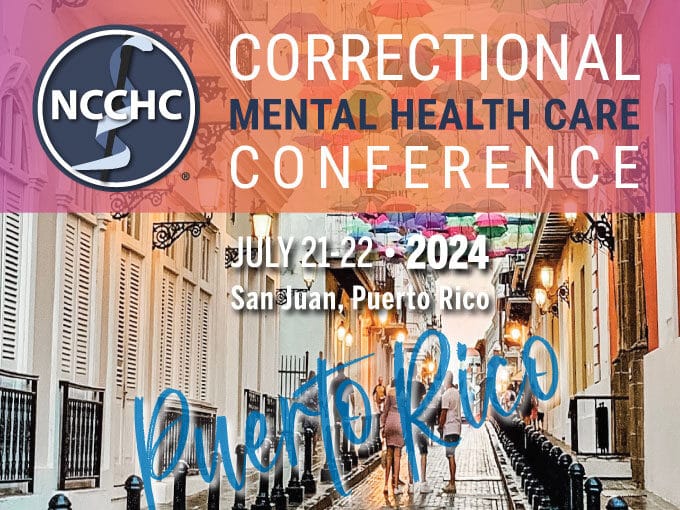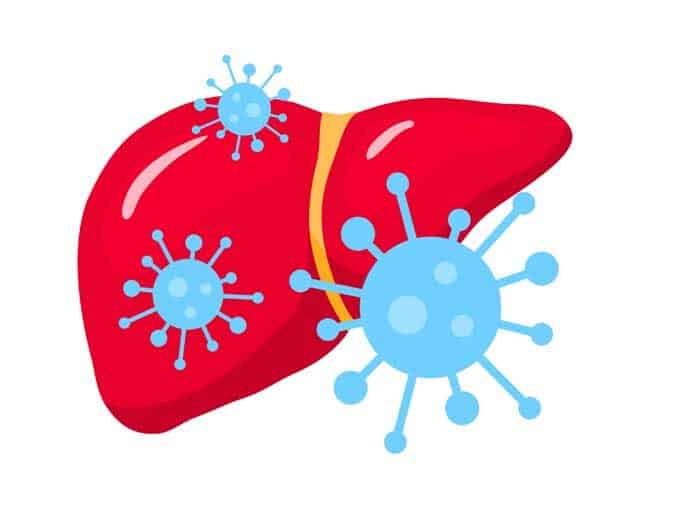
Say hola to Puerto Rico
The 2024 Correctional Mental Health Care Conference will be held in sunny San Juan!
Home Showing Up to Advocate for Our Patients
Thank you for showing up every day for your patients and providing them with the best possible health care.
When I first started going to NCCHC conferences, I asked former president Ed Harrison, “How do I join NCCHC?” He told me, “You don’t join, you just show up.”
Thank you for showing up every day for your patients and providing them with the best possible health care. They are some of the neediest, most frightened people in society, and need the unbiased, supportive care we can provide.
We also can show up by advocating for the welfare of our patients, beyond what we traditionally think of as direct care.
I have spent my career focused on juvenile justice and health care. We know so much more now than we used to. We understand that PTSD is much more than something experienced by war veterans. We know that many of our patients are victims of trauma. We know that the majority of detained youth suffer from multiple adverse life experiences that result in PTSD. We know that a childhood history of parental incarceration and juvenile justice involvement is associated with mental health conditions later on. We know that all of our patients are likely to have experienced many of these ACEs—adverse childhood experiences.
We can’t change that reality. We can’t change the past. But we might be able to do more than we have been doing.
What More Can We Do?
For instance, we can advocate for at-risk children while they are still young and not in the criminal justice system. How? Talk to the adults in our care about their kids. How often do they see them? Who is caring for them? Is there a plan vis-à-vis the family for when they are released? Do they know the possible negative long-term effects of having an incarcerated parent? You might even suggest that your patient talk to the other parent or guardian about mental health interventions for the children.
Likewise, if you talk to your patient’s family, ask about the children. How are they doing? This is another opportunity to bring up mental health care for them—an opportunity for early intervention.
Although progress has been made, the rate of juvenile confinement in the United States is still three to five times higher than in any other country in the world. A lingering problem is the disproportionate incarceration of youth of color. Today five times as many African-American youth are incarcerated compared to the rest of the youth population.
LGBTQ youth are also disproportionately represented at three times the rate of incarceration compared to non-LGBTQ youth. Why do LGBTQ kids end up in the justice system? Because they are kicked out of their homes, become homeless, turn to crimes of desperation and are subject to laws that are disproportionately applied to LGBTQ youth.
How Can You Help?
Be aware that your patient may be lesbian, gay, bisexual, transgender or queer. Ask about life experiences. We know LGBTQ kids are reluctant to disclose because of negative results of previous disclosure. Encourage them to talk with their lawyer so he/she can present their life experiences to the judge to allow development of appropriate stipulations.
For instance, a gay boy who has been kicked out of his home and bullied at school would have difficulty adhering to the stipulation that he attend school and stay home. An appropriate, accepting out-of-home placement and a new school might be necessary in order for this boy to meet the stipulations of his probation.
We can support our patients by just providing an understanding climate in the medical department. For example, by using motivational interviewing we can help juveniles develop a desire to change their nonproductive behaviors without preaching, which we know turns them off.
Whether you have 50 or 500 or 5,000 patients, each one is an opportunity for change. Let’s show up and advocate for them.
– Robert E. Morris, MD, CCHP-P, is the 2020 chair of NCCHC’s board of directors and board liaison of the Society for Adolescent Health and Medicine. This column is based on a speech he delivered at the 2019 National Conference on Correctional Health Care.


